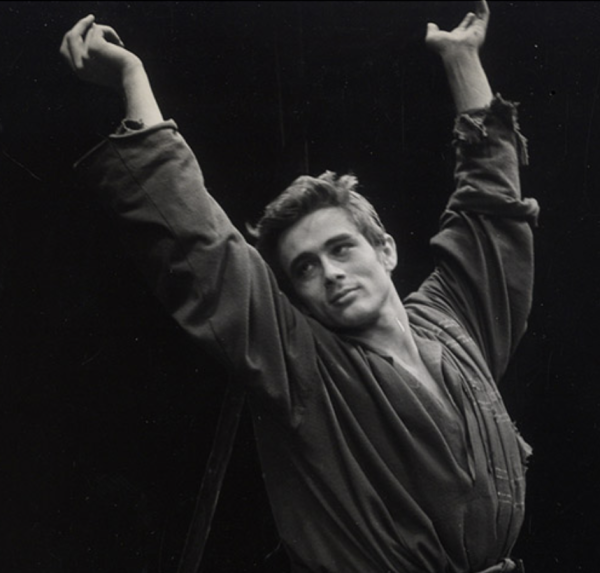
James Dean – an Inspiration
James Dean (February 8, 1931 – September 30, 1955) became a Hollywood star and Icon, although he appeared in only three films in five years, prior to his death at 24, killed in an automobile accident, while racing his Porche.
On Broadway
Prior to Hollywood, there was Broadway. These two extremely scarce vintage photographs document James Dean in the 1954 Broadway production of The Imoralist.
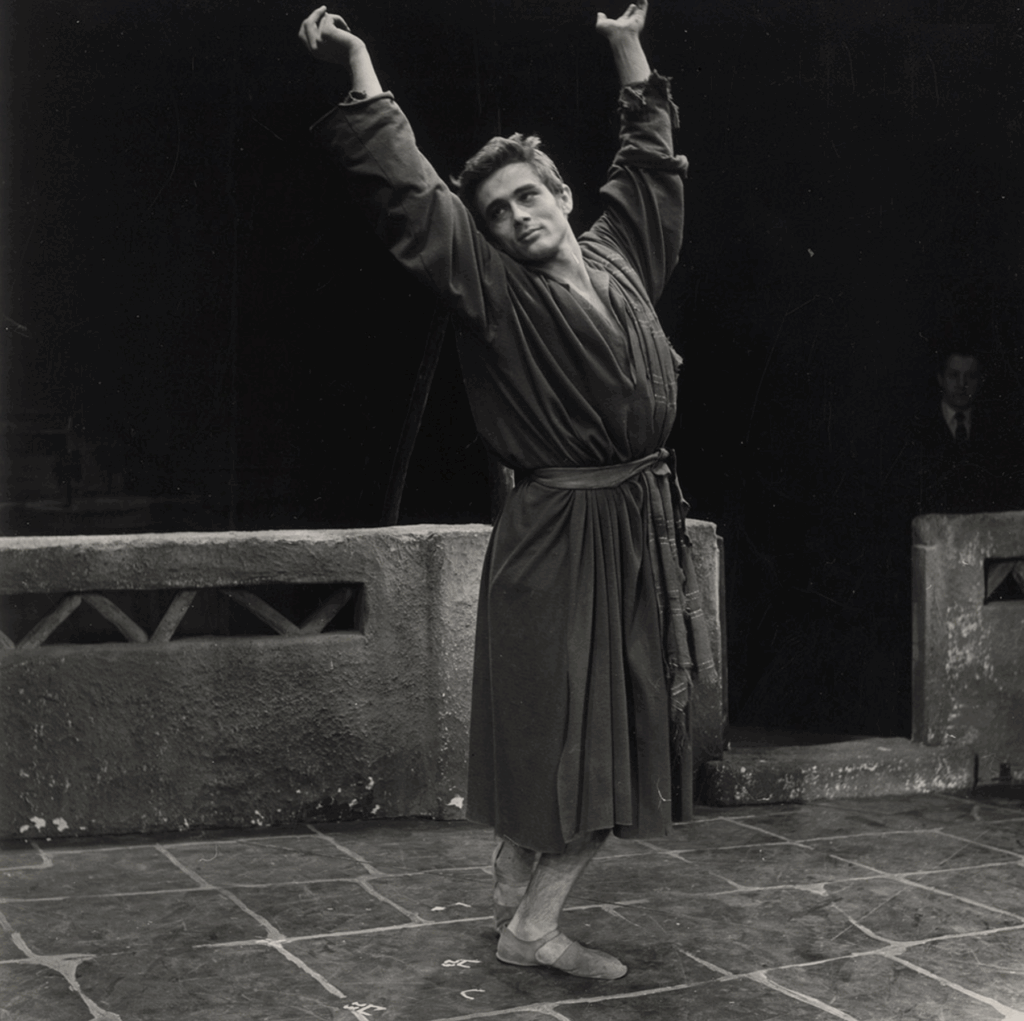
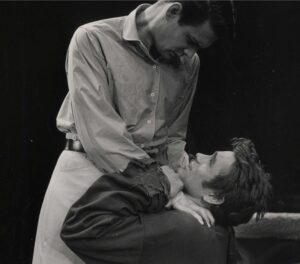
The Imoralist – James Dean & Louis Jourdan
Dean, playing an Arab houseboy, seduces his boss, a homosexual archaeologist (Louis Jourdan), which allows the archaeologist to sleep with his wife, who becomes pregnant.
“Dean was not very happy playing a pandering homosexual North African houseboy,” recalled his friend Hal Hackady. “He didn’t like the plot and, he didn’t like playing a homosexual on Broadway. He felt uncomfortable.” Elia Kazan saw the show during previews and offered Dean a role in East of Eden
In Hollywood
James Dean’s impact on film and popular culture was profound. He became an icon, due to a combination of his raw, authentic performances, his personal embodiment of teenage rebellion and social alienation, and his tragically premature death that cemented his legendary status and created a lingering sense of “what if” for a generation.
- East of Eden (1955)
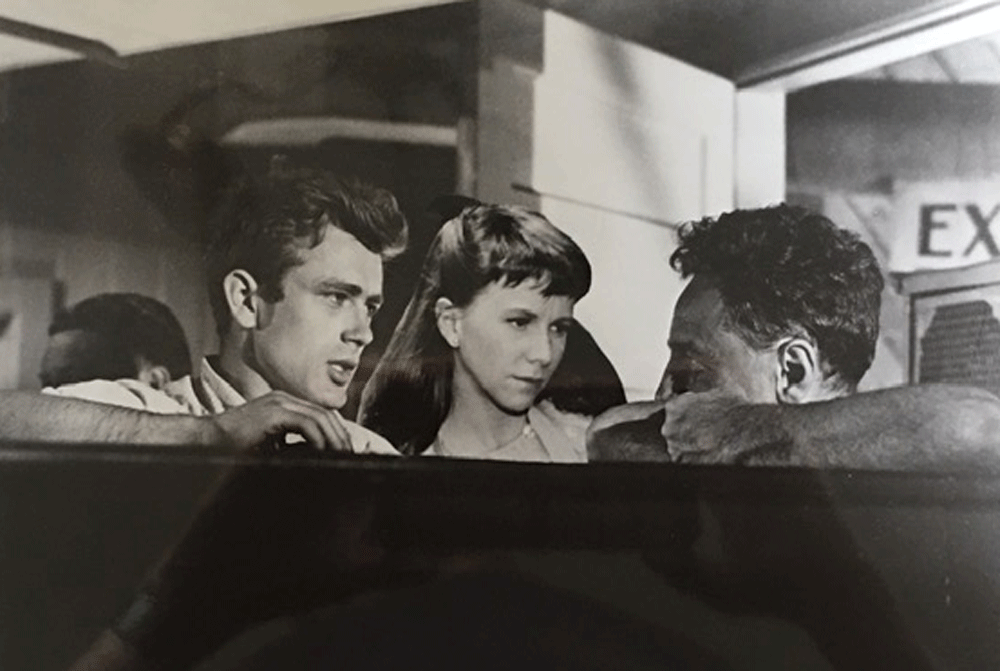
Even before the film’s release Dean’s performance was attracting attention with film critics, producers and directors flocking to see the film in screenings before its theatrical release. Upon its release in March 1955, gossip columnist Hedda Hopper wrote: “I can’t remember when any screen newcomer generated as much excitement in Hollywood as did James Dean in his first picture, East of Eden
- Rebel Without a Cause (1955)
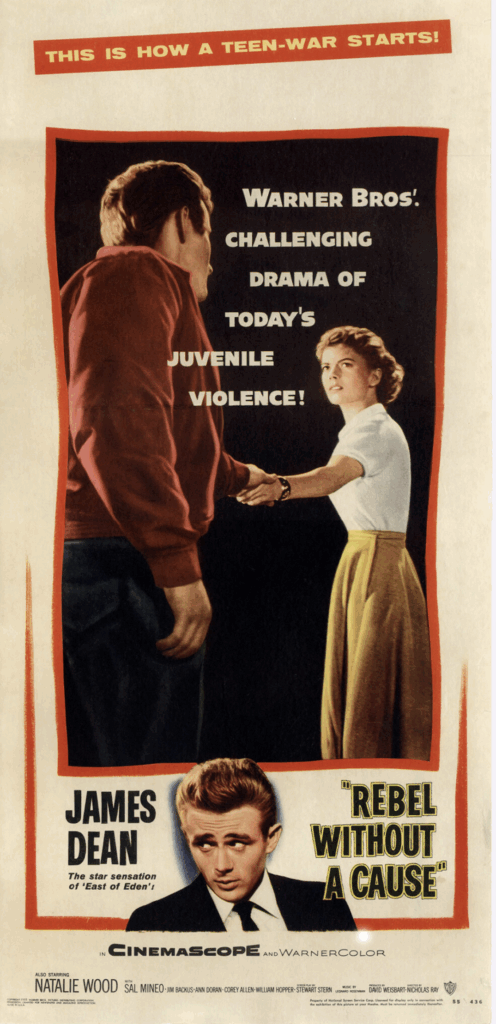
Acclaimed for its deep dive into teenage angst, identity struggles, family dysfunction and generational divide is the film’s reality. This is reflected in James Dean’s portrayal of Jim Stark and was lauded for the intensity of his performance.
- Giant (1956)
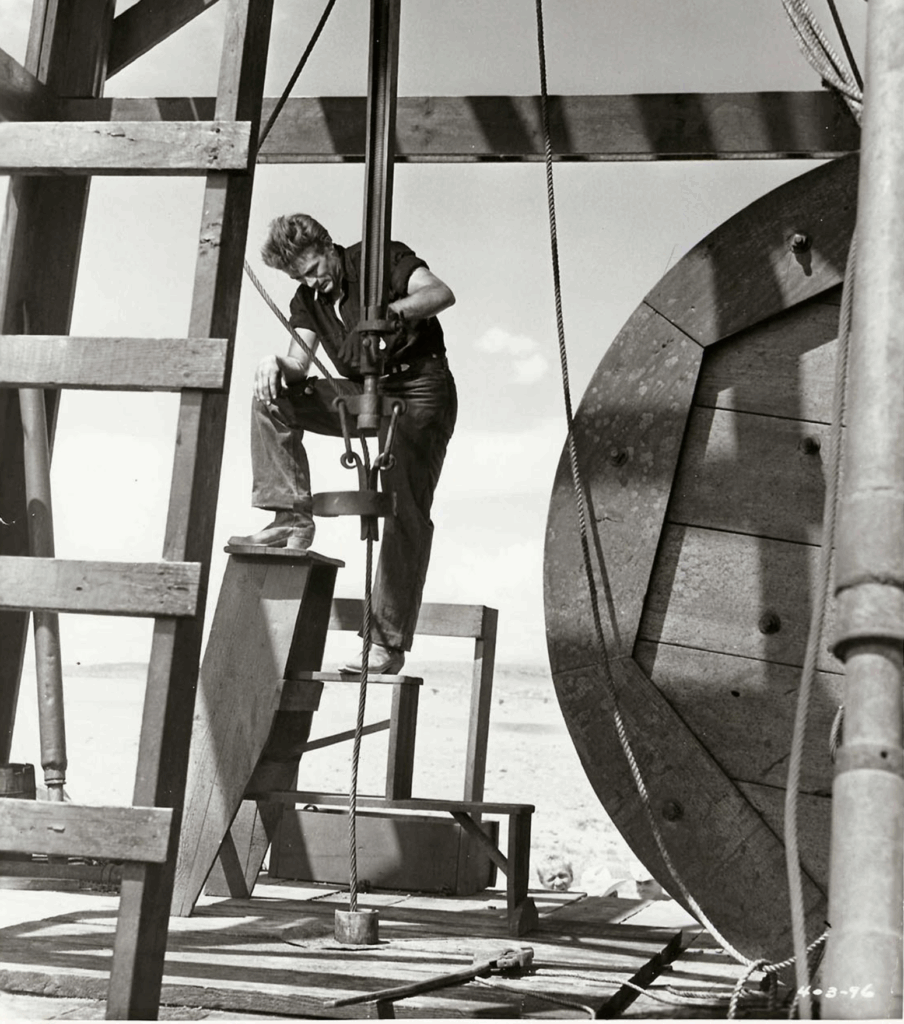
George Stevens (director) gave Dean an opportunity to challenge himself and his audience to become something more. In Giant, Dean grew up and forced his fans to do the same.
National Film Registry
All three films have been preserved in the United States National Film Registry by the Library of Congress for their “cultural, historical, or aesthetic significance”.
Academy Awards
James Dean was the first actor to receive a posthumous Academy Award nomination for Best Actor for his role in East of Eden. The following year, he earned a second nomination for his performance in Giant, making him the only actor to receive two posthumous acting nominations.
Legacy & Inspiration
In 1960, James Dean received a star on the Hollywood Walk of Fame. In 1999, the American Film Institute ranked him the 18th best male movie star of Golden Age Hollywood in the AFI’s 100 Years…100 Stars list.
Journalist Joe Hyams states that Dean was “one of the rare stars, like Rock Hudson and Montgomery Clift, whom both men and women find sexy.“ And according to Marjorie Garber, this quality is “the undefinable extra something that makes a star.”
Teenagers
American teenagers of the mid-1950s, when Dean’s major films were first released, identified with Dean and the roles he played, especially that of Jim Stark in Rebel Without a Cause. The film depicts the dilemma of a typical teenager of the time, who feels that no one, not even his peers, can understand him.
Actors
Martin Sheen has been vocal throughout his career about being influenced by James Dean, “All of his movies had a profound effect on my life, in my work and all of my generation. He transcended cinema acting. It was no longer acting; it was human behavior.”
Johnny Depp credited Dean as the catalyst for his wanting to become an actor.
Nicolas Cage said he wanted to go into acting because of Dean. “I started acting because I wanted to be James Dean. I saw him in Rebel Without a Cause, East of Eden. Nothing affected me – no rock song, no classical music – the way Dean affected me in Eden. It blew my mind. I was like, ‘That’s what I want to do.'”
Robert De Niro cited Dean as one of his acting inspirations.
Leonardo DiCaprio described Dean as one of his favorites and most influential actors. When asked about which performances stayed with him the most, DiCaprio responded, “I remember being incredibly moved by Jimmy Dean, in East of Eden. There was something so raw and powerful about that performance. His vulnerability … his confusion about his entire history, his identity, his desperation to be loved. That performance just broke my heart.”
Rock And Roll
Numerous commentators have asserted that James Dean had a singular influence on the development of rock and roll music. Dean was the first notable figure of youthful rebellion and “a harbinger of youth-identity politics”.
As rock and roll became a revolutionary force that affected the culture of countries around the world, Dean acquired a mythic status that cemented his place as a rock and roll icon.
Rock musicians as diverse as Buddy Holly and David Bowie regarded Dean as a formative influence. A young Bob Dylan, still in his folk music period, consciously evoked Dean visually on the cover of his album, The Freewheelin’ Bob Dylan(1963), and later on Highway 61 Revisited (1965), cultivating an image that his biographer Bob Spitz called “James Dean with a guitar“
Dean has long been invoked in the lyrics of rock songs, famously in songs such as “A Young Man Is Gone” by the Beach Boys (1963), “James Dean” by the Eagles (1974), and “James Dean” by the Goo Goo Dolls (1989).
He has also been referenced in some pop songs of the 2010s, such as “Blue Jeans” by Lana Del Rey (2012), “Style” by Taylor Swift (2014), “Ghost Town” by Adam Lambert (2015), and “Ordinary Life” by The Weeknd (2016)
Projection
Dean’s appeal has been attributed to the public’s need for someone to stand up for the disenfranchised youth of the era, and to the air of androgyny that he projected onscreen.
Dean has been a touchstone of many television shows, films, books, and plays. The film September 30, 1955 (1977) depicts how various characters in a small Southern town in the US react to Dean’s death. The play Come Back to the Five and Dime, Jimmy Dean, Jimmy Dean, depicts a reunion of Dean fans on the 20th anniversary of his death.
Template for the Future
While the magnetism and charisma manifested by Dean onscreen appealed to people of all ages and sexuality, his persona of youthful rebellion provided a template for succeeding generations of youth to model themselves on.
Dean is often considered a sexual icon because of his perceived experimental take on life, which included his ambivalent sexuality.
James Dean Clarifies
When questioned about his sexual orientation, Dean is reported to have said, “No, I am not a homosexual. But I’m also not going to go through life with one hand tied behind my back.”
For Additional Information:
Wikipedia
- African American Movie Memorabilia
- African Americana
- Black History
- Celebrating Women’s HistoryI Film
- Celebrity Photographs
- Current Exhibit
- Famous Female Vocalists
- Famous Hollywood Portrait Photographers
- Featured
- Film & Movie Star Photographs
- Film Noir
- Film Scripts
- Hollywood History
- Jazz Singers & Musicians
- LGBTQ Cultural History
- LGBTQ Theater History
- Lobby Cards
- Movie Memorabilia
- Movie Posters
- New York Book Fair
- Pressbooks
- Scene Stills
- Star Power
- Vintage Original Horror Film Photographs
- Vintage Original Movie Scripts & Books
- Vintage Original Publicity Photographs
- Vintage Original Studio Photographs
- WalterFilm

